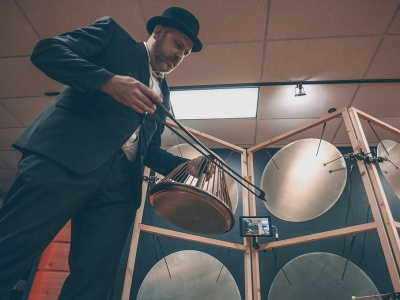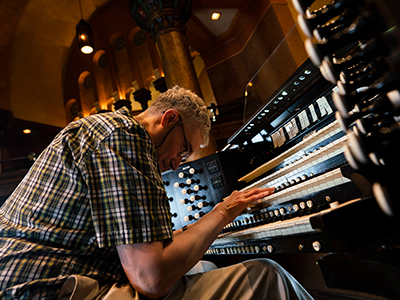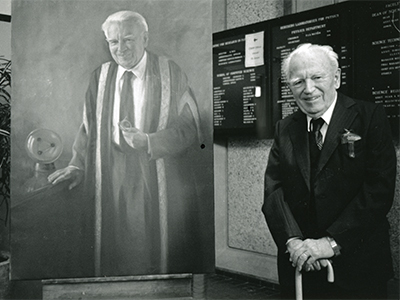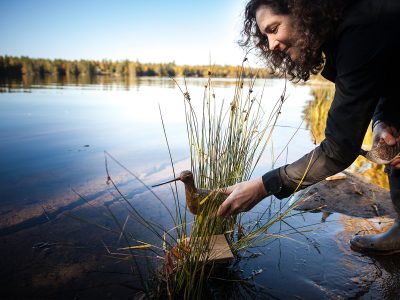As told to Dan Rubinstein
Photos by Martin Lipman and Chris Roussakis
Kim Hellemans is a neuroscience professor at Carleton, chair of the department and the winner of multiple awards for teaching and student support. Her research focuses on mental health, stress and addiction.
Jim Davies is a cognitive science professor, director of the university’s Science of Imagination Laboratory and the author of two books, most recently Imagination: The Science of Your Mind’s Greatest Power.
Together, Hellemans and Davies host an award-winning podcast, “Minding the Brain,” which explores cognitive and brain science, covering subjects such as sleep, climate change psychology and emotional expression. They’ve been recording it from separate locations for a few months, so we interviewed them individually and stitched together their conversation.
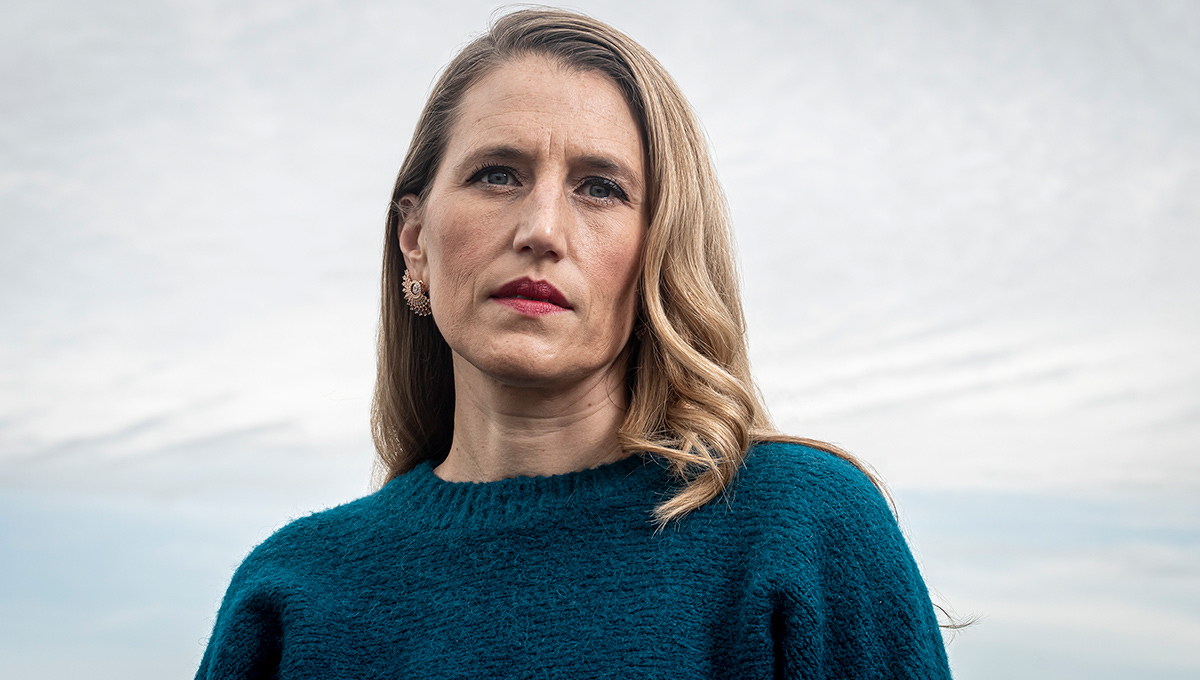
Prof. Kim Hellemans
Jim: I first heard about COVID-19 in late 2019 and figured it was nothing. That was fairly rational at the time. Different diseases pop up now and again and they’re usually nothing to worry about. I started thinking it was a real problem in early 2020 when it was spreading around the world and was particularly virulent and people were dying.
Kim: I follow a lot of medical and science people on Twitter and started seeing a lot coming out of China in January. It was inevitable that information would trickle out. Right before Reading Week in February, I remember telling a student, “We’ll see how long we’re going to be back for after the break.” It happened so quickly. We went from “It’s far away in China” to “Look at what’s happening in Italy” to the first cases in the U.S. There’s no way it could be in the U.S. and not in Canada.
Jim: I was in Toronto just as everything was shutting down. Hour by hour things were changing. The streets were emptying and we were figuring out how to react. My wife and I were going to see the musical Come From Away and it was cancelled two hours beforehand. Then I was on TVO’s “The Agenda with Steve Paikin,” the last studio interview they filmed. We flew back to Ottawa on a nearly empty plane and shut ourselves in.
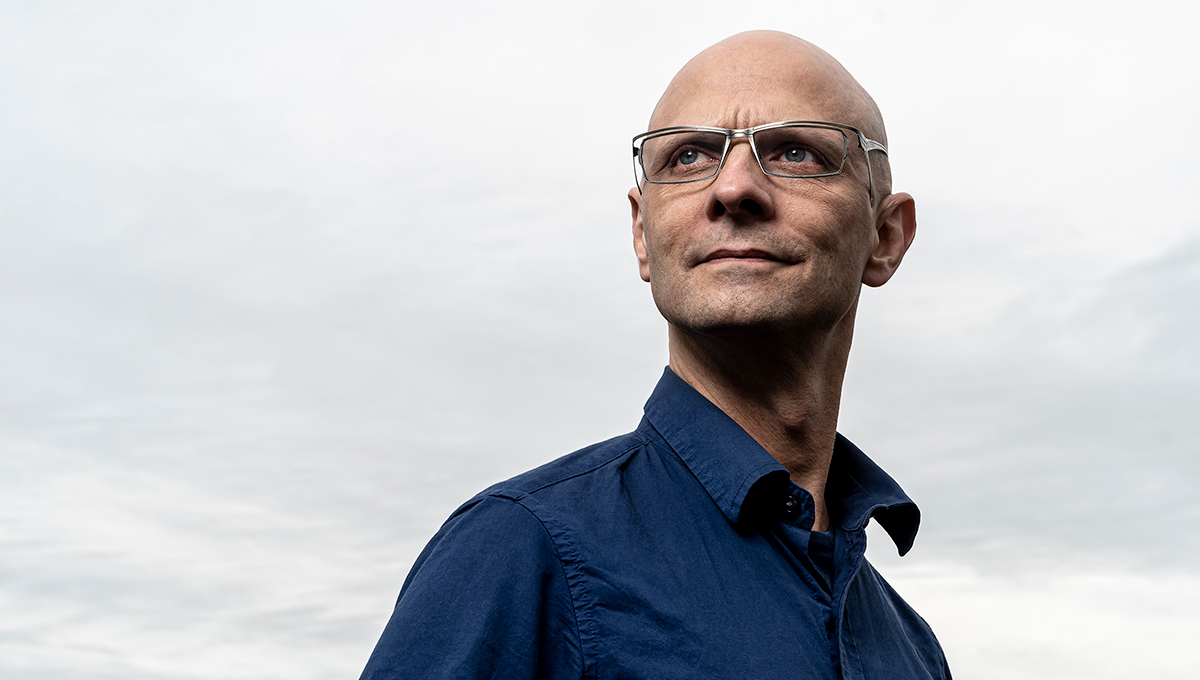
Prof. Jim Davies
Kim: Two or three days before the university shut down I was in a departmental chairs and directors meeting devoted to COVID-19. There was a big event coming up on campus and we weren’t sure if it was going to go ahead. My heart was pounding. I was flooded with adrenaline and I was scared. “All I want to do is go home,” I was thinking. “I want to pack up my stuff, get my kids from school and go home.” There was so much we still didn’t know. It felt like the virus was everywhere and nowhere at the same time, so that was my emotional fear-driven response.
Jim: I have an intellectual interest in many facets of our world, and I think about things scientifically to try to understand them. That informs the practical decisions I make with respect to, you know, how much I stay in the house or how often I shop. Science informs my opinions and behaviours, and I try to keep my selfish urges at bay and have everything be determined by my moral compass.
Kim: Seven years ago, when I was pregnant with my second child, my husband and I made the mistake of watching the movie Contagion. Since then I have had an acute fear of pandemics. I’m very conscious of illness and am anxious when my kids get sick. As Carleton shut down, I was combing mainstream media and social media for any information related to COVID-19. I was looking at the preprints of journal articles coming out of China, trying to learn as much as I could. That soothed me. When I’m panicking and fearful, I always turn to science. It’s a powerful coping mechanism. I turn to rational information to try to understand what I can control. I can’t control the spread of this virus. I can’t control other people’s behaviour. But I can try to control mine.
Jim: I’m immunocompromised, so I wash my hands a lot and try to wear a mask any time I go outside. I believe in modelling good behaviour. The more people wear masks outside, the more social proof it establishes and encourages — the same way that fashion works. I also don’t want to have to think about it. I know how habit works. When something becomes a habit, it becomes the default position. You just do it. Like having a cup of coffee in the morning. It’s not like people decide to have coffee every morning. Even if they’re thinking about something else, the coffee will get made and consumed.
Kim: The neural basis of routine is deep-brain basal ganglia. If something is compelling enough to override your routine, it’s going to signal to your prefrontal cortex, which is then going to signal down to your basal ganglia to put a stop to that routine and correct course. Let’s say you’re driving along a highway that you’re on regularly and you kind of tune out. But all of sudden you see ambulance lights in the distance. You’ll put your foot on the brakes. That’s kind of what happens on a daily basis. Routines and habits are good and they’re soothing. I have an exercise routine, a work routine, a home routine. But you need to have the flexibility to get out of those and adapt to the current scenario.
Jim: The function of habit in the brain is to make space for your conscious thought, your cognitive processing, your goal-directed behaviour. You can really only think about one thing at a time. But because you need to do more than one thing at a time — like walk and breathe and talk — there’s this habit system that runs those processes and controls your body when your cognitive system is occupied with other things. The problem is if you’ve got a bad habit, you can’t rely on your cognitive system to always prevent you from engaging in it, because at some point you’re going to be distracted and the habits will take over. So curating your habits and trying to replace the bad ones and encourage the good ones is necessary for good behaviour. Even without the pandemic, our lives are constantly changing and you have to end old habits. Your body tries to respond to the environment the best way it can. The reason we develop bad habits is because we have some natural instincts that aren’t great in our modern-day environment. That’s why eating M&Ms every day is an easy habit to have because sugar has been, for the vast majority of human existence, extremely rare. Developing a habit of eating sugar if you could was a great idea. Modern Canada is not suffering from caloric restriction, yet we’re still energy saving creatures.
Kim: The society we live in today is very different from what it was in 1920 and 1820. It’s often massive events — industrialization, World War I, World War II, economic collapses — that shake us up. Society is being disrupted now on a massive scale and we’re altering our behaviours. I’m fascinated by the sociology of it. What are we changing that is never going to go back? Also, what is going to be disrupted for the better? When we think about teaching going online, for example, we’re also thinking about equity and how to support students from marginalized communities and students who struggle with certain modalities of learning. What we’re doing could actually benefit certain populations if we keep them front and centre. That might sound a little Pollyanna, but if we don’t consider positive outcomes we run the risk of becoming incredible cynics and succumbing to despair.
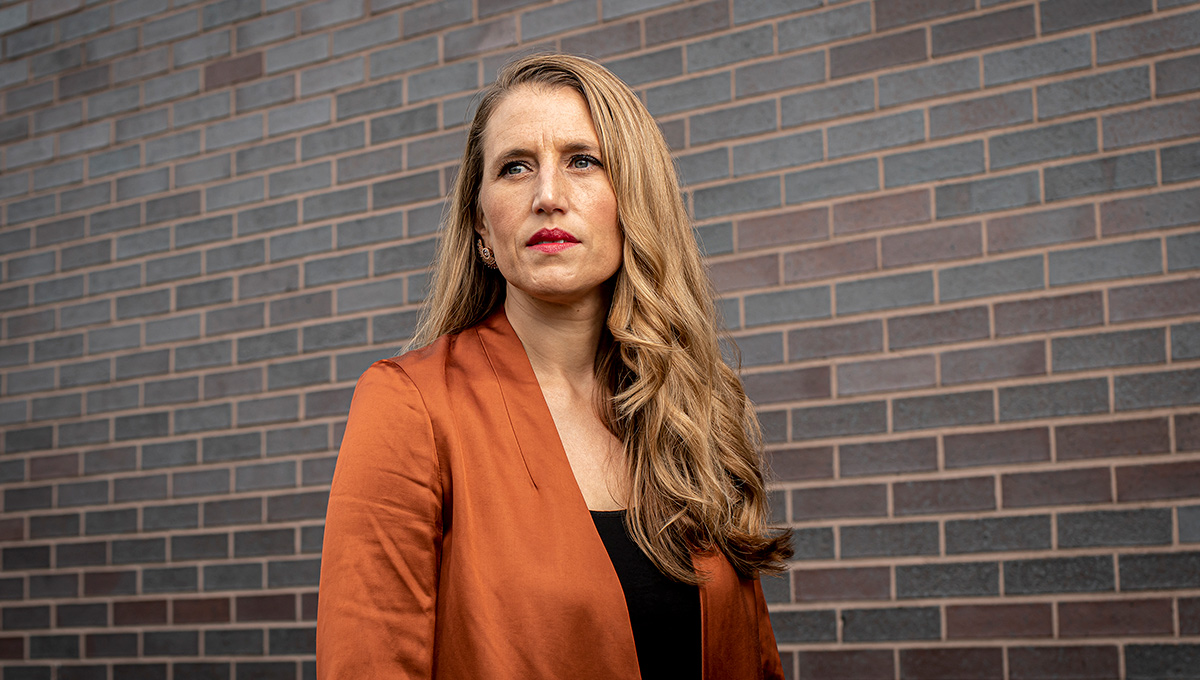
Jim: When you’re dealing with bad uncertainty — when you don’t know how bad something is going to be — that can cause anxiety. Sometimes, in psychology experiments, people prefer to get a more intense electric shock then an unknown amount of electric shock, even if the intensity would likely be lower. That indicates there’s a value to certainty. Also, uncertainty keeps our minds thinking about things and increases our emotional response. In artistic works and in religion, where there are mysterious things that are hard to understand, your mind tends to obsess over them, in either a good or a bad way. An ambiguous ending can be a beautiful thing and your mind won’t let it go. If the ending is a little too wrapped up, it’s satisfying in the moment but your mind tends to forget it because there’s nothing really there to figure out. So uncertainty generally causes your cognitive system to think about things over and over again. If it’s a fearful uncertainty, you’re going to be re-experiencing negative emotions, because your mind is constantly returning to those ideas, and that can border depression.
Kim: One of the best mechanisms to stave off fear and anxious worry is to focus on today, on what’s happening today. We have this wonderful prefrontal cortex that allows us to time travel: it allows us to think about the past in order to plan for the future. Some say this is the root of our intelligence because our cognitive capabilities of planning for the future ensures our survival. But it may also be what is at the seat of a lot of mental health disorders, because when you think about rumination and worrying, it’s about lamenting the past and worrying about the future. So the best way to keep the prefrontal cortex in check is mindfulness — focusing on the present day, the real, the here and now. There’s also the concept of “grounding,” of thinking about what you can control. You can control how often you wash your hands and you can try to maintain physical distance. Your reaction to things that you hear about? You can’t control that. Another tip I’ve heard from psychologist friends is that if you’re susceptible to worry and rumination on the uncertainty of tomorrow, then spend 15 minutes every day thinking about or writing down all your fears and concerns. Then that’s it: 15 minutes and you’re done. You’re kind of relieved of your worries.
Jim: There’s a belief out there that in hard times people get really selfish and start turning on each other. But under conditions where people feel that we’re all in this together, the opposite happens. You get a remarkable kind of community building. Sometimes people look back at a food shortage or a power outage or a natural disaster, such as a flood, and see that they were hard times but they also reminisce fondly about the incredible feeling of mutual brotherhood that arose. This pandemic has inspired that. You see people getting to know their neighbours a little bit more and helping each other.
Kim: We’re seeing the uptick in cases of COVID-19 because I think people are getting physical-distancing fatigue. As a species, we are social. Obviously, this exists on a continuum, but most people need some socializing. Are Zoom and other digital proxies enough to keep us going? I don’t think so. We need human interactions and we’re fighting against that inherent drive. I’ve got two lovely kids, an amazing husband, and my parents and my sister and her family are also in my bubble. I have a very busy work life. All of this can maintain me, to a certain extent, whereas 20-year-olds who are unpartnered, who may be out of a job, who are not currently in school, they’re driven to hang out and be social. They’re going to bars. If I were 20 that’s where I would want to be too. I think we need to recognize that there is an inherent human desire to be social. This is the challenge. It’s not my problem to solve, and holy crap am I glad it’s not. But we need to figure out a way to live with this virus in the next few months, maybe years, that allows us to be in social environments.
Jim: It’s comforting to know that when things go bad, it’s not just every man for himself, but a lot of the changes we make as a species are situational. People want to get back to normal and will start giving one another the finger on the road again. I don’t think the feeling of community that’s engendered by this pandemic will last. The bubonic plague had enormous repercussions far beyond what we’re talking about now. It ended serfdom because so many people died and there weren’t enough serfs around and suddenly everyone’s work was valuable and everyone started getting paid. But that has nothing to do with the building of community. Disasters of the past changed society in a zillion ways, but their contribution to progress is very complex. This pandemic is bad, but it could be way worse. There’s an argument to be made that we would never have prepared for the one that’s going to be way worse if we hadn’t had one that was just a little bit scary first. Maybe we’re actually inoculating our psyches and our research priorities. We might actually start preparing for it.
Kim: We need to gather information. This is what me and my colleagues are doing. I do research on university populations and their mental health. We need to find out how they’re doing. Right now, we’re seeing if people who had pre-existing conditions are suffering the most, or is it everybody? We’re tracking them through time. We’re looking into whether we’re seeing increased rates of problematic substance use and, if so, how can we respond? How can we best provide that circle of care? If it’s virtual, what are the best virtual means to support students and people in general? We need to listen and put money towards this. Because mental health has not, historically, been a space that has been sufficiently funded. But maybe we’re going to hit a crisis point. And people like me need to keep advocating for mental health awareness and keep ensuring that the voices of people with lived experience are heard.
Jim: At a government level, this is a good time to push through legislation to increase support for mental health. My American friends are shocked because they think that Canadian medicine is socialized, but it doesn’t cover therapy or drugs. The two things that help with mental health are therapy and drugs. So, basically mental health is not covered by our so-called socialized medicine. I think that’s a real oversight.
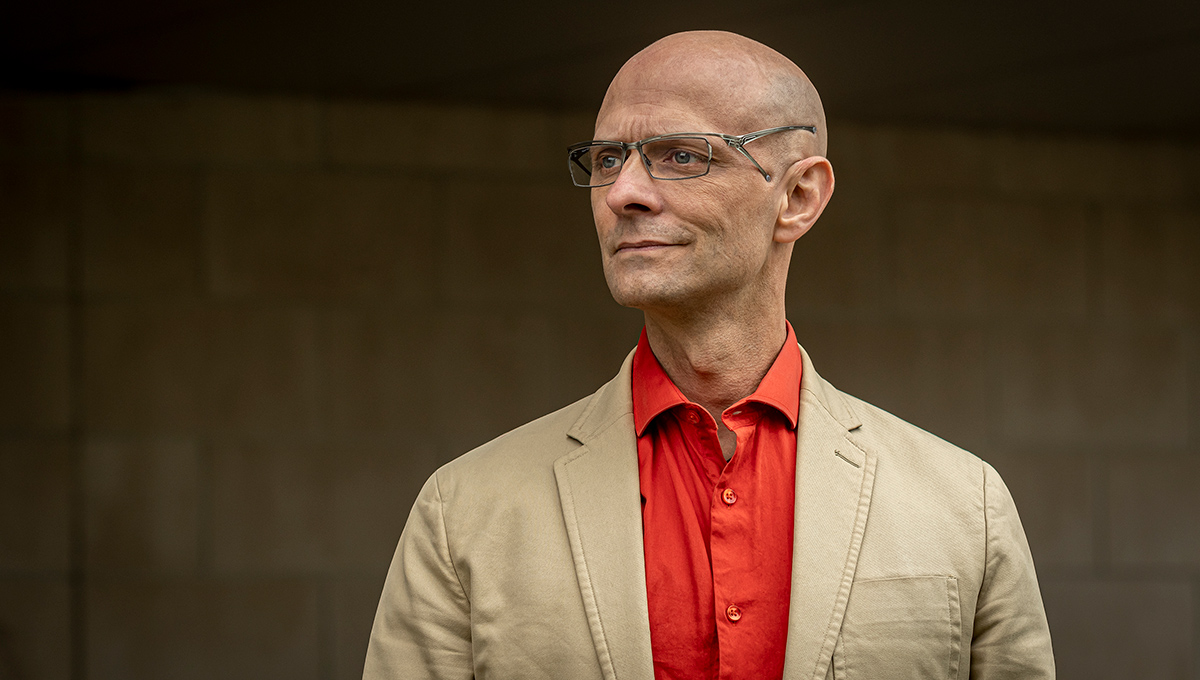
Kim: The cure cannot be worse than the disease. The factors that are contributing to ill mental health right now are social distancing and the fears and concerns of people without jobs, without support, without access to services. We know when your mental health is suffering, you’re getting lots of proinflammatory factors coursing through your body, which makes you more susceptible to disease. There’s a reason why mental health and physical health are so interrelated. When somebody is not doing well mentally, they’re more at risk. We’re already recognizing that COVID-19 is disproportionately affecting people from marginalized populations. Mental health is a big piece of that. I feel the burden of responsibility for advocating for mental health among students, and also the burden of continuing to provide excellent educational opportunities for my students and buoying their journey, because they are more vulnerable and at-risk and they’re facing the worst economic prospects in generations. I also feel a certain amount of responsibility to be an advocate for science, period. There’s a vast amount of misinformation and politicized information out there, and I need to chime into the conversation about what’s fact and what’s evidence and what’s not.
Jim: During the pandemic people might be paying maybe more attention to science than they normally would, but I’m not convinced that faith in science has been declining. I haven’t seen good evidence for that. In Steven Pinker’s book Enlightenment Now he makes the case that in every single way that you can think of the world is getting better and has been over the last hundred years. Even fake news. People forget that fake news was way more rampant than it is now. The very fact that people even know what fact checking is, the fact that we even have the reflection to be able to even have a concept of fake news, suggests that society is smarter than it used to be. The only things that seem to be getting worse are social capital in the industrialized world and environmental destruction.
Kim: I had a moment in the summer when I realized that I probably wasn’t going to be on campus for a while. It made me sad. I value being around students and my colleagues and have grown to appreciate them more. I’m sure there are some people who are out living their best lives and couldn’t be happier to be away from others, but I am genuinely sad. Because of my role at Carleton and who I am, I’m usually all over campus, meeting with lots of different people, creating deep friendships and strong collegial relationships that I just can’t replace. Video calls are no substitute for coffee chats and bumping into one another in the tunnels. I’m hopeful, though. I know my emotions are going to be waxing and waning. The way I cope with that is I acknowledge it, I label it — here’s what I’m feeling — and I move through it.
Jim: The summer for me was not that much different because I usually just sit at home working all summer anyway. I wrote a book, my third, which is coming out in early 2021 and is going to be called Being the Person Your Dog Thinks You Are. It’s about the science of productivity, happiness and morality. If you want to be the best person you can be, how do you be maximally productive, maximally happy and a maximally good person? I didn’t change the book much after the pandemic started. In the part about productivity, I talk about research into differences between working at home and in an office. Studies show that at the office you’re more creative and at home you’re more productive. Being with people and having casual encounters helps you hash out ideas. But if what you’re doing is relatively cut and dried, then working from home is better. You know what you need to do and just need to do it.
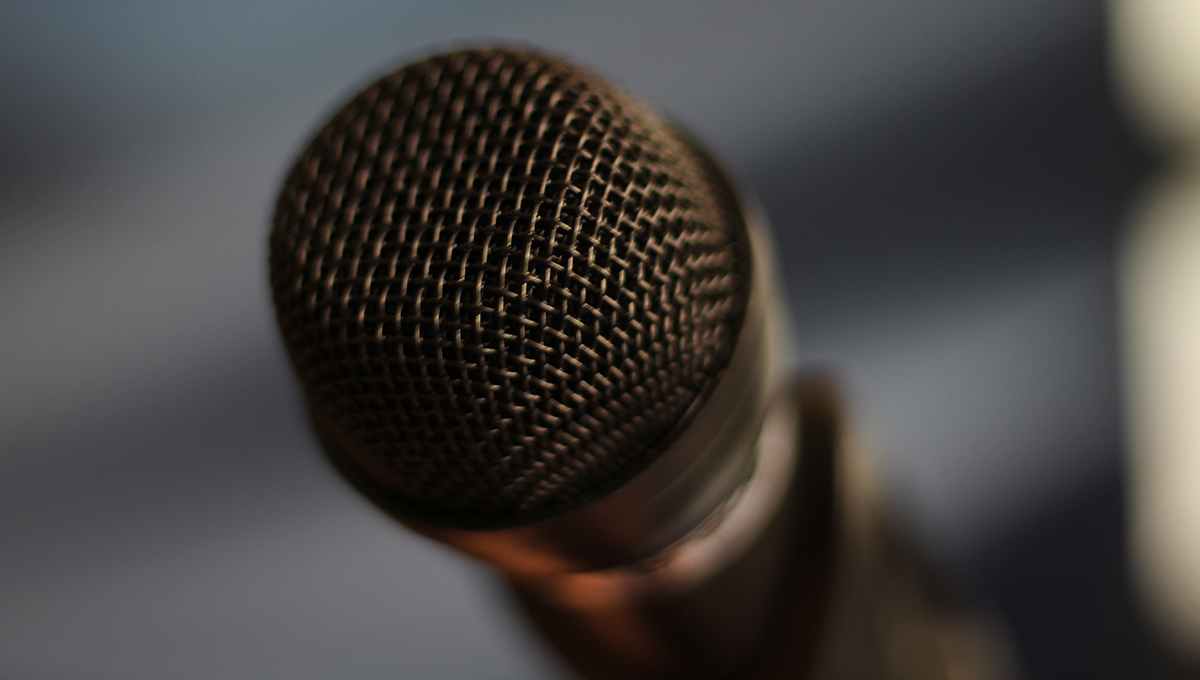
Monday, November 23, 2020 in Features - Fall 2020
Share: Twitter, Facebook
